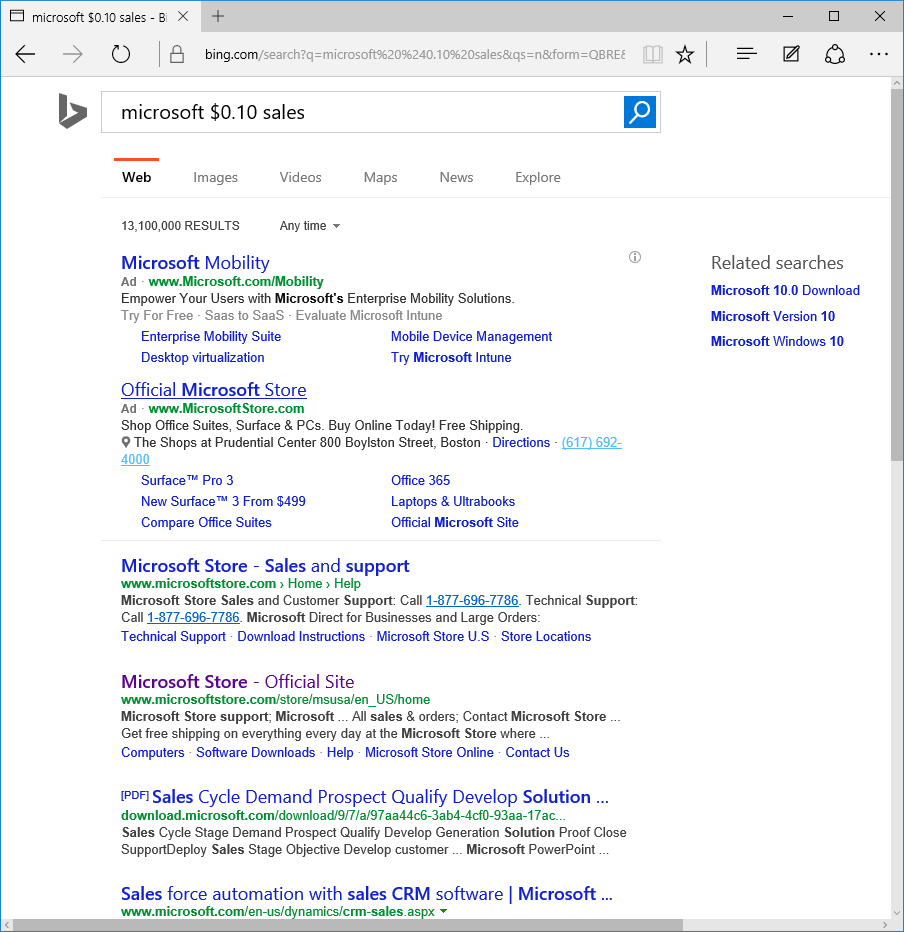November 22, 2015
Bing can’t find Windows 10 Ten Cents sale…but Google can
I heard that Microsoft has some excellent $0.10 deals for Windows 10 owners like me. So I checked Bing:

The top hit (an ad by Microsoft) takes you to a page for corporate sales of Windows phones.
The second hit (an ad by Microsoft) takes you to the generic Microsoft Store front page from which it is virtually impossible to find the $0.10 sales.
None of the rest of the results on the first page of the Bing search gets you anywhere close.
Same search at Google:

The top hit (a Microsoft ad) takes you to the same generic front page of the Microsoft Store as the second hit on Bing, which makes no mention of the $0.10 sales.
The following Google results take you to pages about the $0.10 sales from which you can actually get to the goddamn sale.
Yes, these sales are real. For example, this is from the Microsoft.com site this afternoon:

I got there by going to the WindowsCentral.com post listed in the Google results….although right now the Windows site is telling me that something is wrong and I should come back later.
PS: To get to the Hitman Go sale, my best advice is to go to the Windows Store on your Windows 10 machine. The $0.10 sales are featured there. Or search there for Hitman Go.








